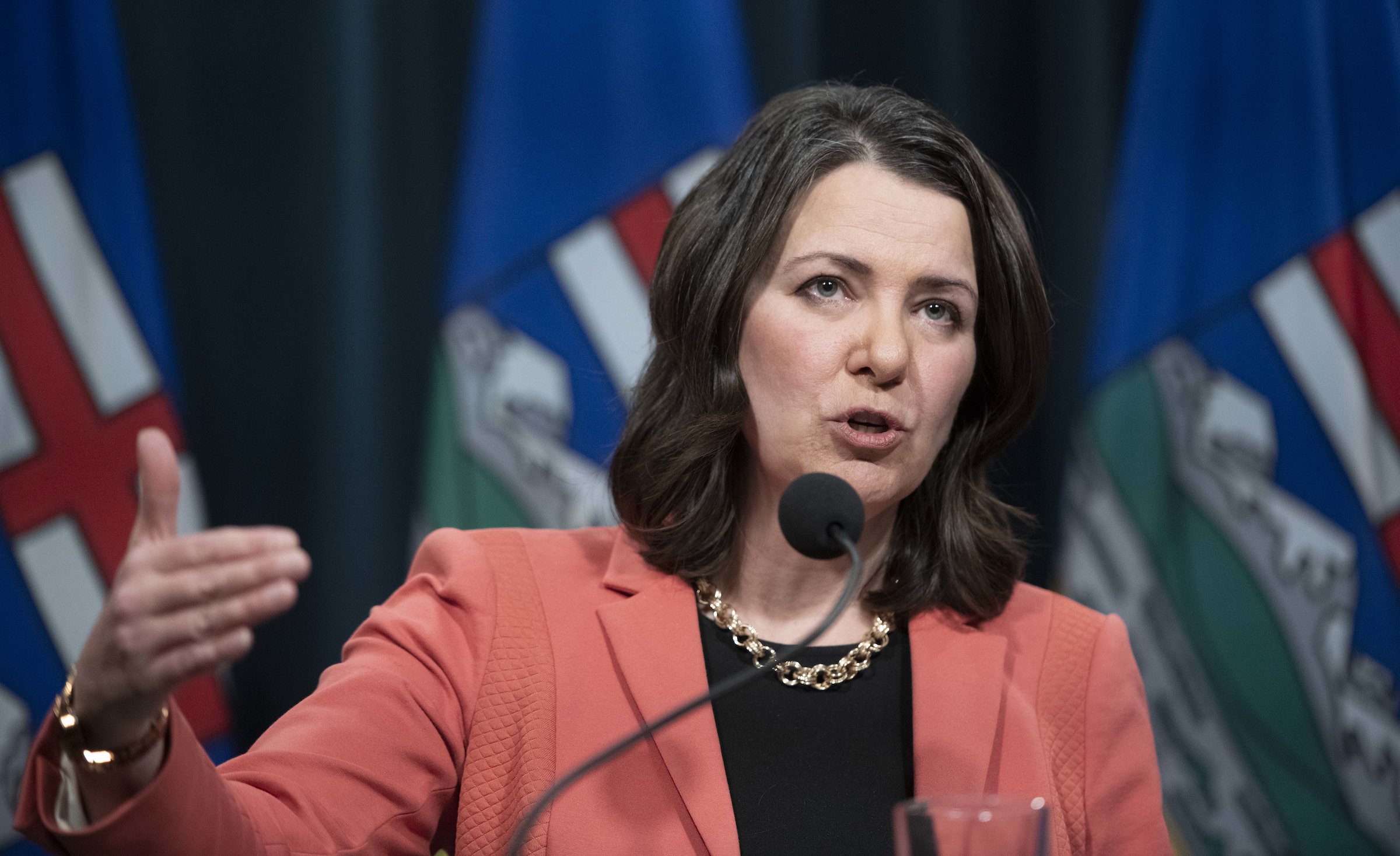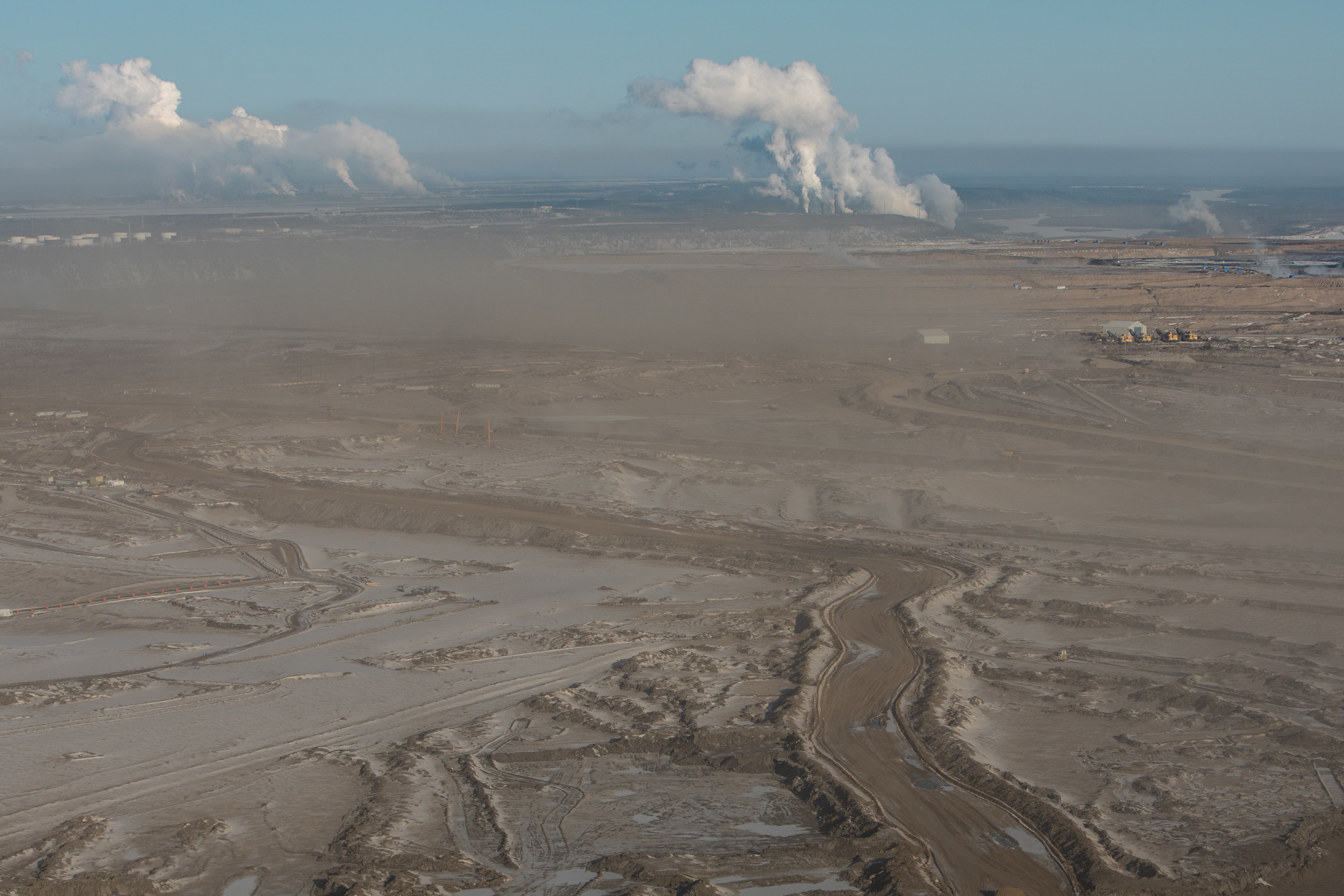
Rocky Mountain coal mine in Alberta takes next step to expansion
In Alberta, a massive open-pit coal mine near Jasper National Park is hoping to expand...
Get the inside scoop on The Narwhal’s environment and climate reporting by signing up for our free newsletter.
If the Alberta government built a nuclear reactor near your home, would you want to know the facts informing that decision? If Alberta gives millions, or billions, to private industry, would you want to know why? What risks and rewards did the government consider when choosing the ground beneath your home as an ideal place to store carbon dioxide?
Under new legislation, you might never have the tools to find out.
As the fall sitting of the legislature wrapped up, and the day after Donald Trump was elected president of the United States, Alberta Premier Danielle Smith’s government announced Bill 34, which lays out new rules for freedom of information in the province. Once passed, the government will be able to censor factual information used to make decisions and restrict the power of the commissioner who can challenge its censorship.
The move, in some ways, would simply legalize the years-long practice of suppressing information in violation of the existing freedom of information act. But it would also make it easier to suppress more information, more often.
The changes would make it all but impossible to learn why the premier and her ministers make important public-interest decisions and would shield an undefined class of “political staff” from any oversight.
It all amounts to “an erosion of access rights,” Alberta’s information and privacy commissioner Diane McLeod told The Narwhal. McLeod said in an interview access to information is “a cornerstone of our ability to exercise our democratic rights” that is under threat, adding she believes there are “many grounds for concern” about the government’s proposed changes.
The proposed freedom of information changes are part and parcel of a larger shift.

Alberta is becoming a place where freedom is defined narrowly as freedom from — freedom from the rights of others, freedom from vaccines, freedom from regulation and, with proposed changes under Bill 34, freedom from factual information. It is a kind of freedom that pits individual rights against collective rights, inevitably eroding each.
It could be seen as a deviation from the current government’s ideological underpinnings and its rhetoric of being “laser focused” on rights and freedoms. But in reality it is consistent with the broader populist jerk of the wheel underway in Alberta, where power is consolidated at the top as the government itself works to chisel away at its bureaucratic base and weakens the very institutions that protect citizens.
“Populists see institutions like courts, legislatures and independent bodies as barriers to the will of the people and work to weaken them, all while consolidating power,” Jared Wesley, a political scientist at the University of Alberta, wrote in an essay on the current moment in Alberta.
“Over time, this approach doesn’t just create a less fair and open society — it risks destroying democracy altogether, leaving behind a system that looks democratic in name only.”
In the past three months, The Narwhal has filed eight separate freedom of information requests regarding both the Banff-Airport rail plan and the related Green Line transit project in Calgary — the largest infrastructure project in the city’s history and a significant public policy issue for the provincial government, which all-but-quashed the project without warning in September.
Any and all useful information was redacted.

Stretching the bounds of credulity, one freedom of information coordinator said there were no records found for communication about the project in the premier’s office, between advisors or within the office of the minister of transportation and economic corridors.
The freedom of information system has long had problems, but the current government has applied exceptions built into the law which allows it to withhold information so broadly as to make the act almost useless.
In another example, The Narwhal requested information regarding a port near Churchill, Man., something Smith has publicly supported alongside other premiers.
There were almost no records released and a full 18 pages were completely withheld under the argument it was “advice from officials.”
After a review process, the government was compelled by the office of the information and privacy commissioner to release those 18 pages. It turns out they were the text of a speech given by Smith, in public, at a Calgary Chamber of Commerce event that was attended by media. There was no reason to withhold the documents, and the speech was of no consequence or use. The back-and-forth ate the time and resources of public servants (not to mention journalists) — and showed the government is eager to expand the definition of what can be hidden from view.
But it also represented a rare victory. The review was expedited and settled in one year from the time of the complaint. Most reviews take years.
Drew Yewchuk, a public-interest lawyer who specializes in freedom of information, told The Narwhal the Alberta government has a misguided view of why freedom of information exists.
“Instead of thinking of the type of requests that you file and that most people file as being a legitimate use of freedom of information, they think of those requests as being harassment of the privacy that should be afforded to the executive branch.”
Bill 34, he said, “is just a horrible mess.”
There is an argument to be made for withholding information — no government can function effectively with complete transparency. Sharing sensitive military data or the latest tactic for trade negotiations can indeed be a problem. There’s even a counter-intuitive argument to be made that too much official transparency results in more secrecy and back-room decision making outside of official channels.

But the changes in Alberta and their implications are significant and almost too numerous to note. Take one that would prevent any information being released that passes through “political staff.” The legislation has no definition of who constitutes political staff — ministers’ chiefs of staff? Summer interns? Everyone in-between? It will eventually be clarified — by cabinet and without debate in the legislature.
The impact of this undefined protected class could trickle down throughout the government and its agencies to prevent the release of vast swaths of previously accessible documents. It could bar access to any and all communication between this staff and all levels of government.
The new law would also bar the release of factual background information that was provided to the government to make decisions and assess the need for change.
“[That] means you won’t get information on what the situation currently is,” Yewchuk, who has written about the new restrictions, said in an interview.
He also noted the increased restrictions on information revolve mostly around the executive branch — the actual decision-makers and their deliberations — rather than the bureaucrats doing the work. This leaves those lower down the chain more open to scrutiny while protecting the top of the chain.
McLeod, the current commissioner, is concerned about the broad exemptions for the executive branch and political staff and the ability of public bodies to deny and delay requests on their own. She said she made her concerns clear to the government — and released her concerns publicly as well.
“Whether or not they took it to heart, I don’t know,” she said. “But what we have is what’s in the bill.”
By changing the law, the government changes the role of the information and privacy commissioner, who doesn’t have the authority to create law, only to interpret it.
Under the new act, not only are there more restrictions on access to information, there is less power for the commissioner, including the ability to review documents to ensure the decision to withhold them is legal.

McLeod expects more work for her already stretched office — she said she asked for a 30 per cent budget increase and received a six per cent bump — and more information being shielded from view.
“I guess a challenge for us will be what we expect to be increased reviews, increased exceptions due to the cabinet confidence carveouts in the legislation and our inability to obtain the evidence that we need to actually evaluate the records that are being used to refuse that information,” she said.
If her office can’t even see the information that’s redacted, she said, “we really are at a disadvantage in terms of providing positive and proper interpretations.”
Wesley, in his essay on the state of democracy in Alberta, said populist parties like the United Conservatives have views on democracy and freedom that are at odds with what we’re used to.
“Instead of protecting individual liberties and group rights, and ensuring diverse voices are heard, populists push a version of democracy that focuses only on the will of the majority — often at the expense of minorities and dissenters,” he wrote.
Populists often invoke freedom, Wesley wrote, “but their concept of it is tied to loyalty to the dominant group rather than universal liberties.”
Once in power, he added, a populist party like the United Conservatives will attack institutions that challenge their mindset, remove the authority of those who can challenge them and stack boards and independent agencies with cronies.
All of that can leave a paper trail (or its digital equivalents) that can embarrass a government still under the watchful eye of journalists and others. That paper trail is often only accessible through freedom of information laws.
Take Alberta’s electricity grid — a sprawling, complicated private system with some governmental oversight in the form of independent agencies and regulators —and its ongoing transformation under the United Conservatives.
Documents obtained by The Narhwal showed the government under Smith put pressure on the independent grid operator to get in line with its controversial decision to halt new renewable energy development. It also showed the head of that operator, Mike Law, was deeply uncomfortable with the move and his staff felt pressure to “lie” on behalf of the government.
The content of the documents weren’t the only revelations, however. The records obtained through freedom of information were from the grid operator, not the ministry of affordability and utilities, which withheld significant information from release.
The documents painted a picture the government did not want painted.
It was just one example of a restructuring taking place across Alberta as part of the government’s consolidation of power — think replacing university boards all at once, overriding municipalities, the Green Line fiasco, firing the board of the provincial pension agency and appointing Stephen Harper, changes to the bill of rights, the dissolution of Alberta Health Services and more.
Two months after revelations about the head of the grid operator pushing back against the government were published, Law was out of a job. His replacement was a board member appointed by the United Conservative government.
He will oversee market reforms that will impact electricity prices, the ability to keep the lights on, the potential deployment of nuclear reactors and more.
With changes to Alberta’s freedom of information laws, those kinds of stories might not be told in Alberta again.
Get the inside scoop on The Narwhal’s environment and climate reporting by signing up for our free newsletter. A $335 million funding commitment to fund...
Continue reading
In Alberta, a massive open-pit coal mine near Jasper National Park is hoping to expand...

A trade war could help remake B.C.’s food system, but will family farmers be left...

First Nations are leading efforts to make sure lake sturgeon can find a home in...
